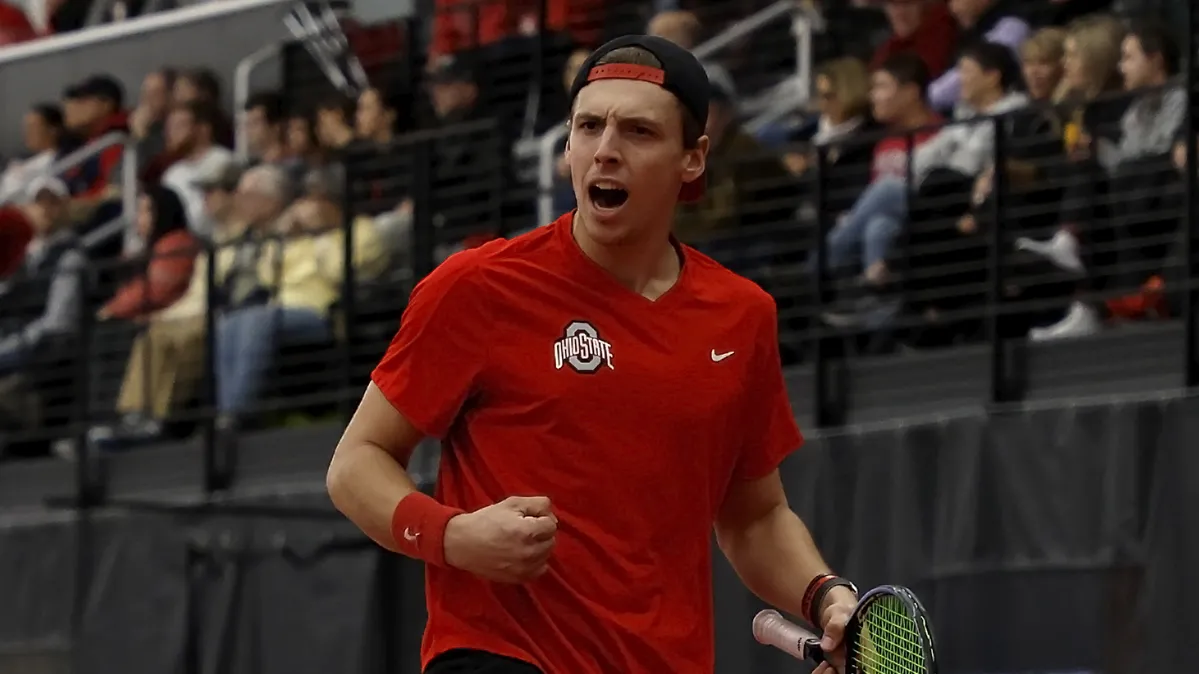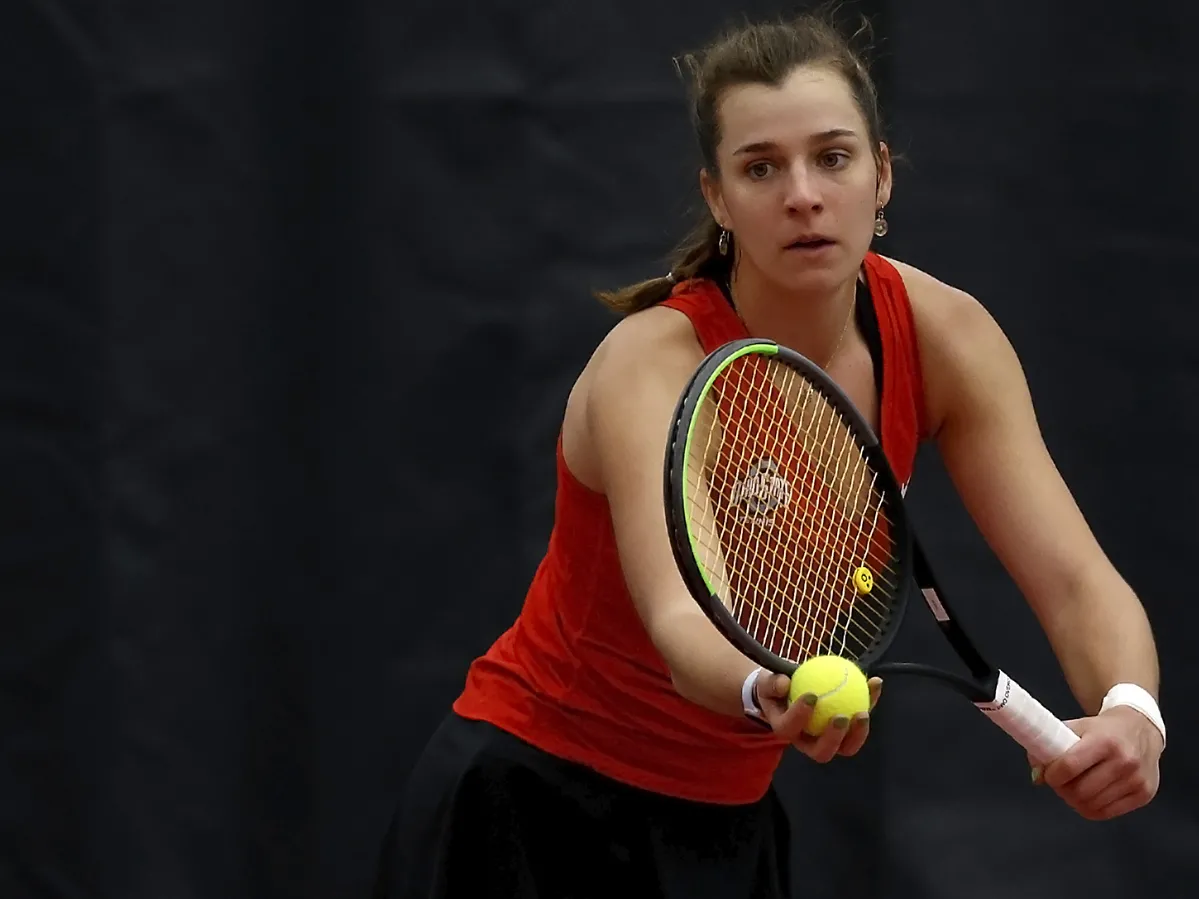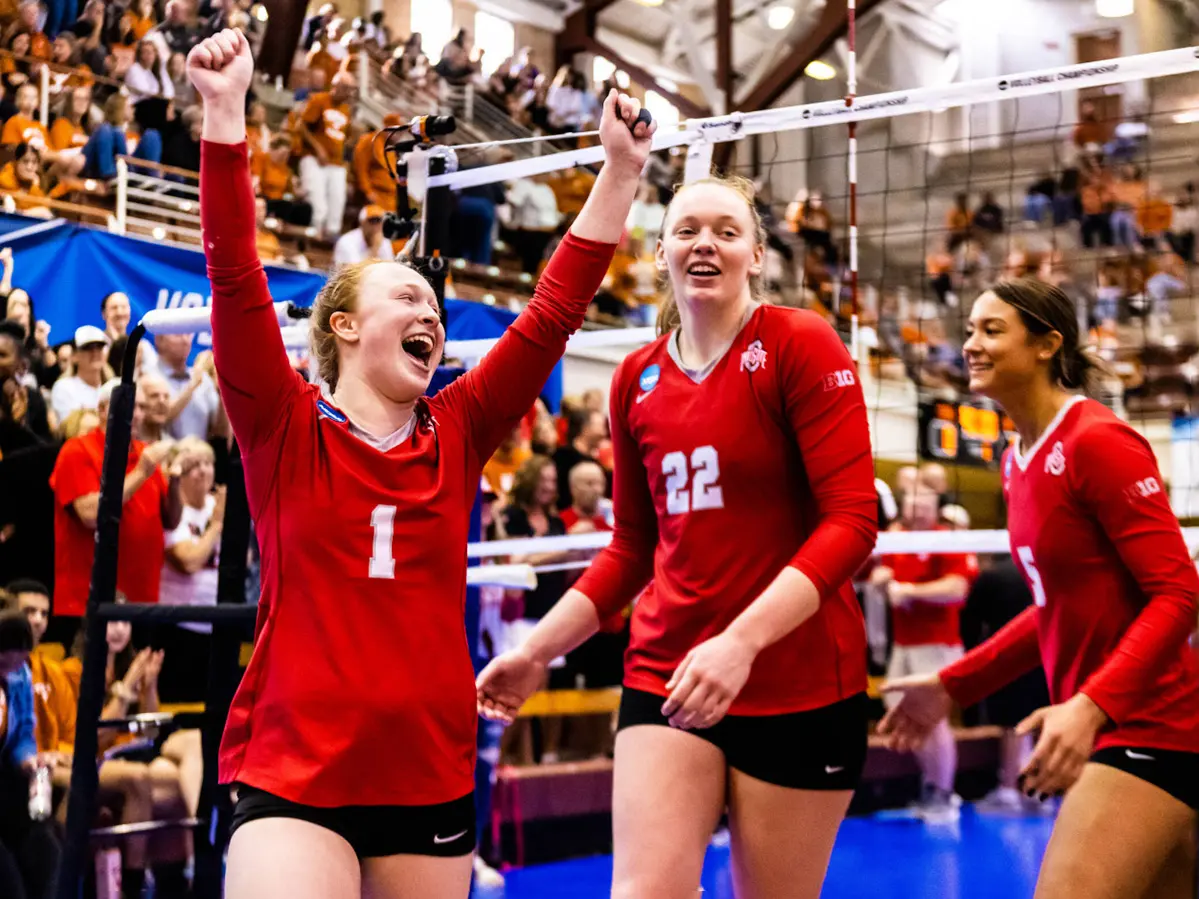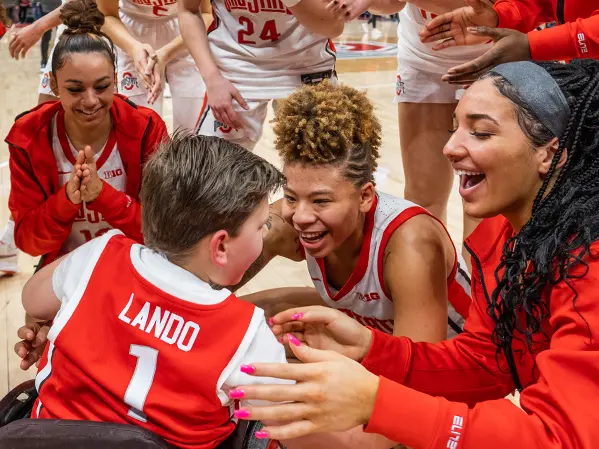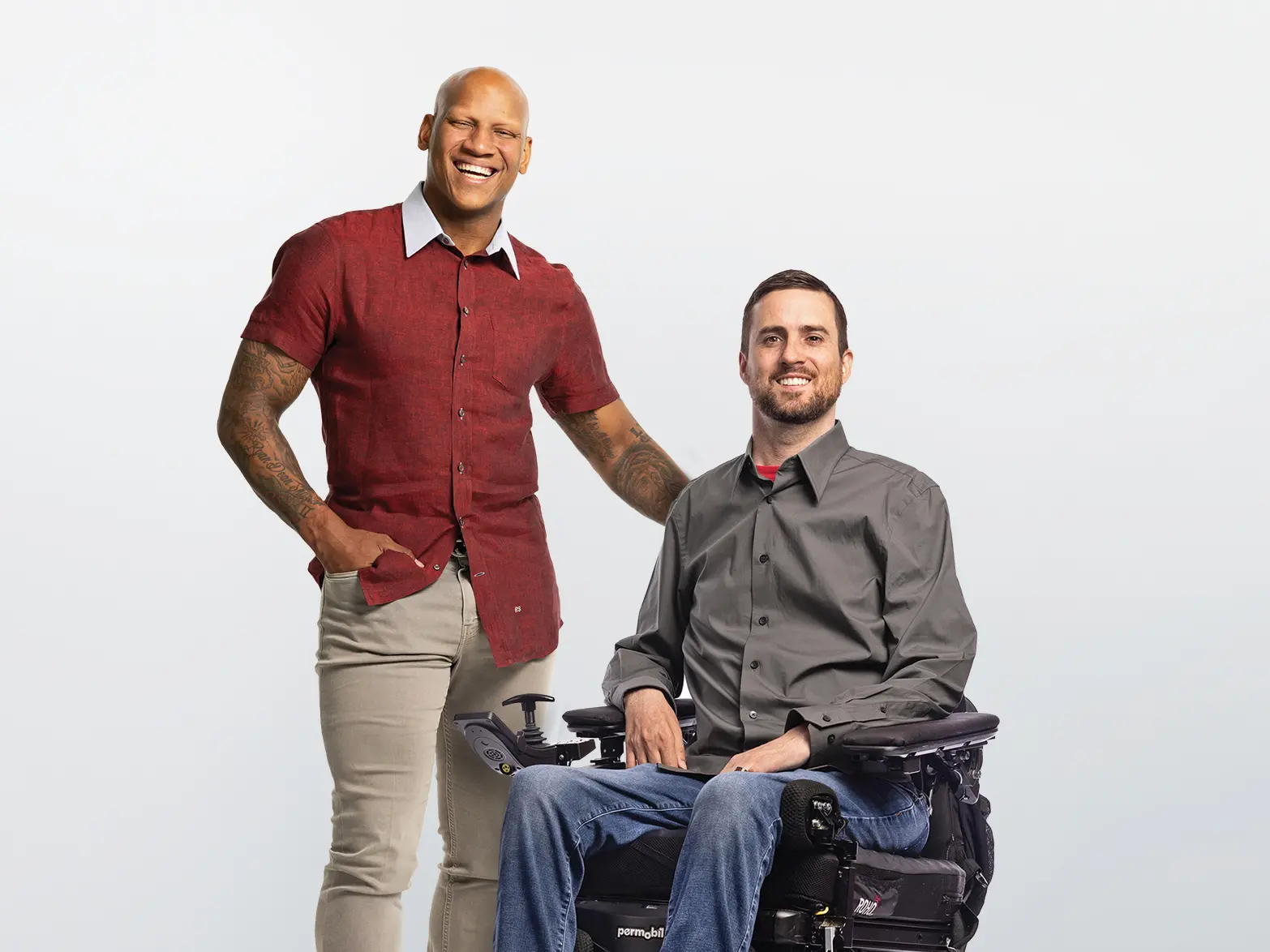For a full week after he tore his meniscus — for the third time — Andrew Lutschaunig worried he might have sustained the injury that would end his collegiate tennis career.
He hadn’t, as doctors were able to repair the tear in his knee using a minimally invasive procedure. But it wasn’t the first time the men’s tennis captain worried about a potential career-ending injury, and it wouldn’t be the last.
When Lutschaunig won the 2023 NCAA doubles championship — one of just two Ohio State doubles teams to win a national championship — he was playing with a torn labrum, running on adrenaline. Less than a week later, he went in for shoulder surgery. At certain points during his six months of rehab, Lutschaunig acknowledges he found himself wondering if he’d ever be the same player. Still, he remained committed to returning to the court.
“Everything’s always in perspective. While injuries seem like the end of the world for an athlete, they’re not always,” he says. “I can look around and understand that, even if I feel like I’m not doing great, I’m still an athlete at one of the greatest universities. I’m still learning.”
Lutschaunig started developing that wisdom in high school. As a teenage tennis player in Richboro, Pennsylvania, he sustained two knee injuries that threatened to derail his plans to play at the collegiate level. But Ohio State’s Coach Ty Tucker ’98 urged him to redshirt, enrolling at the university and practicing with the team, but waiting a full year before playing competitively.
“The coaching staff here is honest with where you’re at in your game,” he says. “My knee still wasn’t great. I wasn’t ready to play at this level.”
Lutschaunig played one uneventful year before contracting COVID-19 and then developing a heart issue that caused his heart rate to spike intermittently. A heart ablation resolved the issue, but kept him out of regular play for a few months. And while playing with that injured shoulder, Lutschaunig hurt his elbow by overcompensating.
In May 2023, doctors advised him that if he wanted to play his final season at Ohio State, he should undergo surgery to fix his shoulder issues and follow that up with a minor procedure to repair his elbow. Six months into recovery, Lutschaunig says playing is more difficult these days. As an “overhead athlete” who relies on his upper arms and shoulders, a labrum injury is hard to come back from.
“My serve is still not there,” he says. “I have the strength back but not the full movement. It feels really good to play, though.”
Despite all the challenges, Lutschaunig has excelled on the court, clinching the singles match in the 2022 NCAA quarterfinals and taking the doubles point in the 2023 Big Ten Championship to help his team defeat Michigan.
Under Tucker, the men’s tennis team has catapulted to become an elite program that contends for Big Ten and national titles year after year. The entire tennis program regularly makes headlines. Schaub led the women’s team to each of the last eight NCAA tournaments, including trips to the Super Regionals (formerly called the Round of 16) in 2021 and 2023, and this season became the team’s all-time coaching wins leader.
As for Lutschaunig, in his sixth and final year, he’s focused on the things he can control: staying on top of rehab and strength training, doing everything his trainers ask of him, being a good teammate and taking advantage of time off the court to pursue an internship at Kaufman Development. He earned his bachelor’s in finance and now is pursuing a public management certificate from the John Glenn College of Public Affairs.
Lutschaunig commends the men’s tennis trainers, Solomon Campbell and Ali Fischer ’19, for helping him to manage his injuries and pushing him to stay match-ready while never overdoing it.
“I really would not be on the court if it weren’t for them,” he says.
